Business
Hail to subsidy, our king of corruption and rot
Published
4 years agoon
By
Publisher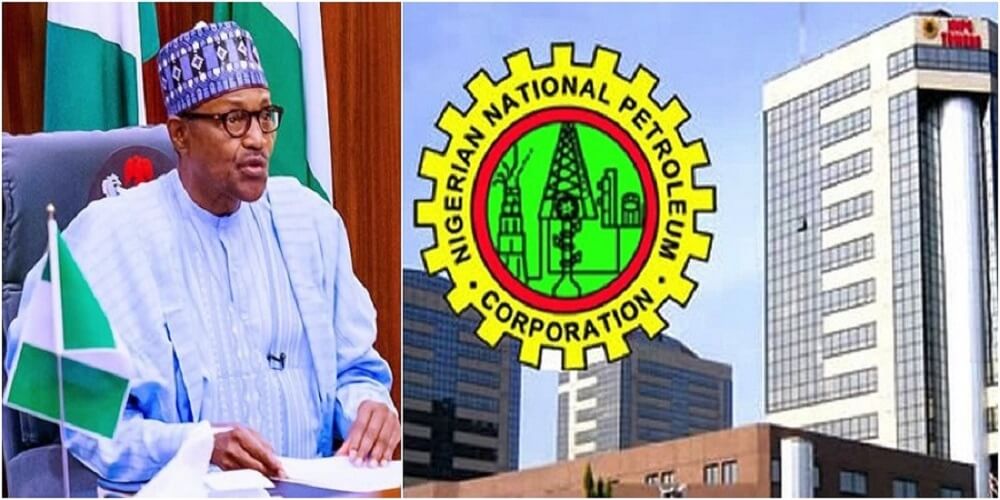
By Nosa Igiebor
The country is in turmoil. But the events happening with a rapidity and seeming inevitability that leave us all breathless and helpless, have reduced this obvious fact to a mere cliche.
How did we get trapped in the prevailing madness that’s beyond description and explanation? The answer lies in our pathological amnesia and irresponsibility. We’re a nation bedeviled by an effete, corrupt and clueless leadership at all levels and bad followership that’s forever looking to the heavens for salvation. We readily shirk our responsibility to stand up for our serially raped nation and hold the political buccaneers and jobbers, who find their way to elective and appointive offices through all sorts of crooked means, to account. We moan, we pray endlessly and do nothing else.
As we moan and pray and look to the heavens for an end to our misery, we get more and more scammed by those who control the levers of power. For the government, indeed their government, at whatever level, exists solely for their immense benefits and to cause the rest of us maximum pain.
Typical of our collective amnesia, failure to demand accountability from the government and complicity in our own suffering, is our endorsement of the big lie that fuel subsidy works for us. How does anyone explain and continue to justify the monster scam that subsidy is?
From a political perspective, subsidy is dumb because its continued retention is just a convenient postponement of the day of reckoning. And that day will eventually come. When viewed from the economic perspective, it’s the most insane policy any government, worth the appellation, will adopt and retain against the overwhelming evidence of its destructive and disruptive effects on the country’s finances and deleterious obstruction to impactful economic and social investments.
Since both the government that thrives in dishonesty and the public that’s anesthetized by its ignorance continue to pretend otherwise, then let’s hail subsidy for what it really is. It’s now the undisputed king of corruption and rot in government; the powerful symbol of our indulgence in endless denial; and the mirror of a nation led mostly by the worst among us, and fated to fail.
Yet another evidence of subsidy’s enduring power is how it has easily trumped the much-hailed Petroleum Industry Act, PIA, passed by the National Assembly after so many previous failed attempts. President Mohammadu Buhari didn’t waste time assenting to the act as it gave him some political mileage and good media optics. The accolades that rained on him and the National Assembly for finally doing the needful were well deserved.
The PIA is meant to sanitize the entire oil and gas industry, clear all the obstacles against more investments in the sector and most importantly, spur its growth in all areas, especially the downstream end of the industry. And then turn the NNPC into an autonomous, self-sustaining energy company paying dividends into the federation account.
The PIA was first scheduled to take effect from last month. Then the take-of time was peremptorily changed to July. Now Buhari has kicked the can further down the road into the future for the succeeding government to deal with.
The large elephant in the room? Subsidy, which the PIA is supposed to bury for good. When the minister of finance and national planning, Zainab Ahmed, announced that the government would formally end subsidy payments on fuel in July, all hell broke loose as usual. Even her equally insane sweetener, that the government would pay 40 million poor Nigerians N5,000 monthly for six months to cushion them against the expected inflationary effects of subsidy removal, didn’t impress those who endorse the policy that they tout as helping the poor.
The reaction of the Nigeria Labour Congress, the government’s bogey man on the subsidy conundrum, and its affiliates was totally predictable. It issued its usual threat of making the government uncomfortable by organizing national protests.
The government’s response to the threat was also very predictable. It panicked and effectively killed the PIA by suspending its full implementation. Without ending subsidy, the PIA is a non-starter. The president, who doubles as the petroleum minister, chose to prioritize his party’s fortunes in next year’s general elections over the health of the economy and overall national interest.
Labour’s stance and the government’s uneducated decision to continue with subsidy payments completely ignore the mind-boggling numbers that demonstrate the sheer insanity of the policy.
The federal government’s 2022 budget of 17 trillion naira is predicated on massive local and foreign borrowings. Of this amount, the projected actual revenue is five trillion naira. Over 80 percent of that will be used for debt servicing. Meaning that all the other expenditures – recurrent, capital and statutory transfers etc. – in the budget will be funded by loans. For years now the government has been borrowing to pay salaries of its staff. This anomaly neither troubles the government enough to take decisive actions to end the malady. Nor does it concentrate the minds of Labour leaders to want to look at the bigger picture of how subsidy has fueled corruption and held the entire country hostage.
NNPC has asked for three trillion naira to fund subsidy for this year alone. The money has to be borrowed. And that will raise the budget estimates to 20 trillion naira. Keep in mind that actual government revenue projection is just five trillion. The balance of 15 trillion will be borrowed and increase the external and local debts of $44 billion and 43 trillion naira respectively. In May 2015, both the external and local debt obligations were still in single digits.
This government is unrivaled in its willingness to binge on loans. Its addiction to borrowing as the only solution to our self-induced financial challenges, continues to mask its lack of intellectual rigor to analyze the problem, magnified by wrong-headed policies, and the political will to take hard decisions.
NNPC claims that daily petrol consumption is now over 100 million liters. This figure, compared to an estimated daily consumption of 35 million liters in 2015, is voodoo accounting at its most glorious height. Even the minister of state for petroleum, Timipre Silver, has described the figure as “opaque” and inexplicable. There’s no better way to dismiss NNPC’s improbable claim in an economy that has suffered two recessions and has been struggling for nearly seven years.
The proposition that subsidy should continue until NNPC’s refineries are fixed is lazy and untenable. It’s a rather silly way of justifying the stupidity of borrowing to pay for it. In any case, why has Labour never called for nation-wide protests to get the government to fix the refineries that have been run down even before the present government came in? And why has it been eerily silent over the impossible consumption figure that’s completely unrelated to the level of economic activities?
Nigeria is the only country in West Africa that subsidizes petrol. That creates the opportunity for rent seekers to cash in. Our subsidized petrol is smuggled across our non-existent borders and sold at huge profits. Again, why is the minister of petroleum, Buhari, not raising hell over this booming business of petrol smuggling and setting up a special task force to expose those involved and put an end to it.
If the Goodluck Jonathan administration had succeeded in ending the corrupt subsidy regime in 2012, the economy would have since adjusted to market-determined petrol prizes and been much better and more productive than it is now. And more investments would have been attracted to the oil industry. Ironically, most of those who spearheaded the hard pushback against President Jonathan’s plan to end subsidy are in the All Progressives Congress, APC, and the government.
Buhari himself had declared in 2014 that petrol subsidy was a scam because it didn’t exist all. Today he presides over the same economically destructive policy that’s even costing the national treasury far more now than before.
It’s a very safe bet that, even when the much-expected Dangote refinery starts production and NNPC’s ones are finally fixed and working, the government would still not muster the political will to kill petrol subsidy. And Labour would still advance the same worn-out argument that it’s needed to help poor Nigerians. Notwithstanding the fact that the poor benefit the least from it.
Subsidy is a winner when it’s targeted at social programs like education, primary health care, and agricultural production, all of which have economic benefits and really help the poor.
There’s never been any sound economic justification for the humongous amounts of money spent on petrol subsidy in decades now. What’s sustaining it is bad politics and the staggering financial benefits accruing to all those managing what’s clearly a massive scam. And that’s what will continue to keep it firmly in place.
- Nosa Igiebor is a celebrated Senior Nigerian journalist. Email: [email protected]
Trending

 Health1 week ago
Health1 week agoPolice open probe eight months after twin toddlers’ deaths following vaccinations
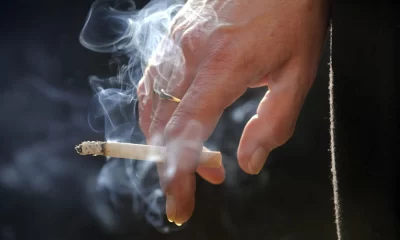
 Health1 week ago
Health1 week agoExpert warns smokers, people with high cholesterol face elevated diabetes risk
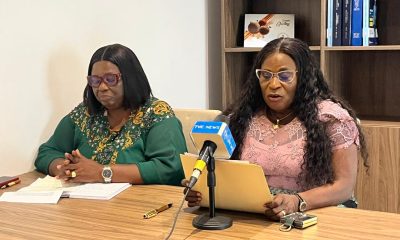
 Latest6 days ago
Latest6 days agoTwo more Rivers lawmakers call for halt to Fubara impeachment
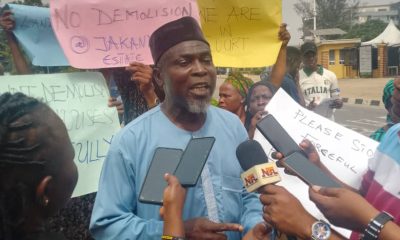
 News7 days ago
News7 days agoJakande Estate residents allege illegal demolition, tasks Sanwo-Olu
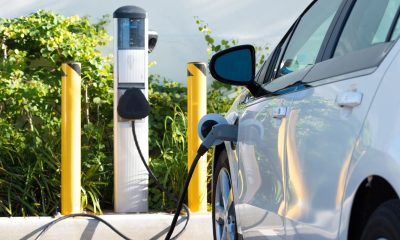
 Business5 days ago
Business5 days agoRising fuel costs, policy push signal EV boom in Nigeria as industry predicts 2026 takeoff

 Business1 week ago
Business1 week agoFG, KPMG meet in Abuja to resolve disputes over new tax laws

 Football1 week ago
Football1 week agoAngola targets Super Eagles Coach Eric Chelle with lucrative offer
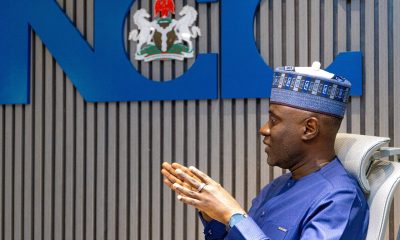
 Business1 week ago
Business1 week agoNCC initiates study on competition in Nigerian telecom industry

